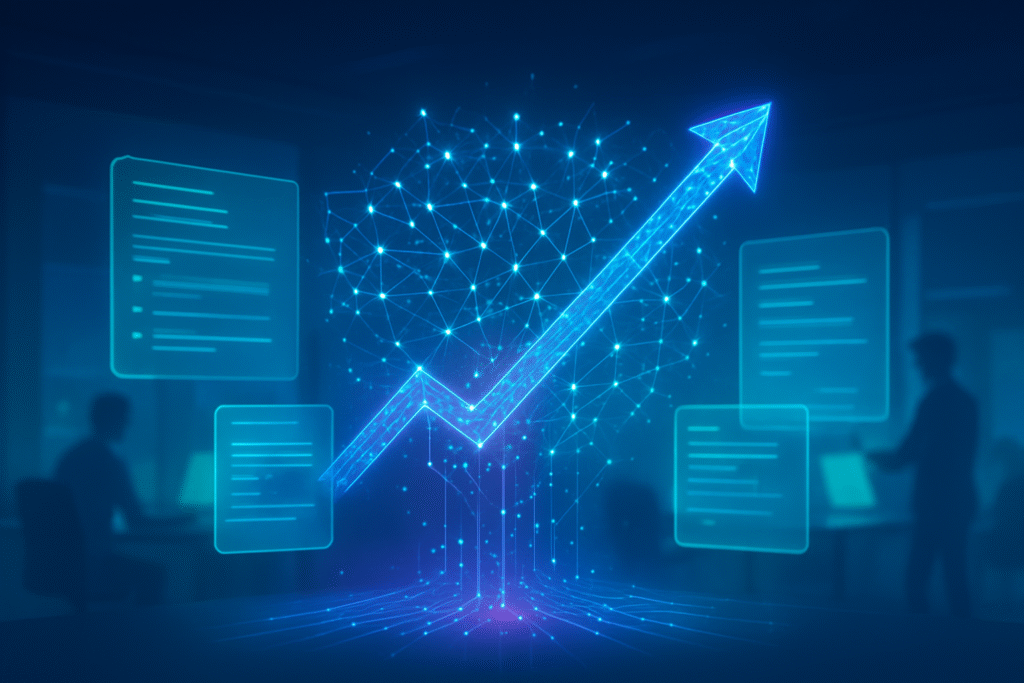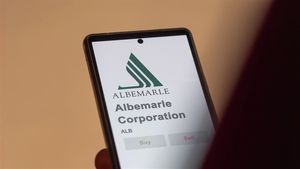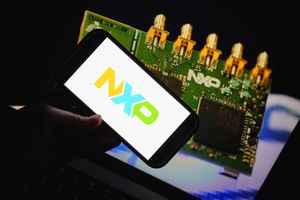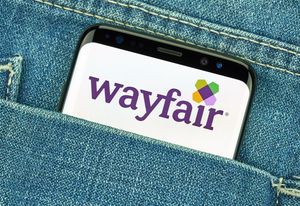
The modern workplace is undergoing a seismic shift, driven by the rapid integration of artificial intelligence. A recent study has unveiled a fascinating, and perhaps controversial, trend: nearly a third of workers are leveraging AI note-taking tools to skip meetings, and these AI-savvy individuals are subsequently enjoying more promotions and higher salaries. This development signals a profound redefinition of productivity, work culture, and the pathways to career advancement, forcing organizations to re-evaluate traditional engagement models and embrace a future where AI fluency is a cornerstone of success.
The Rise of the AI-Enhanced Employee: A Deep Dive into the Data
A pivotal study by Software Finder, titled "AI Note Taking at Work: Benefits and Drawbacks," has cast a spotlight on the transformative power of AI in daily corporate operations. While the precise methodology details were not fully disclosed, the study involved surveying employees on their experiences with AI note-taking platforms, providing a timely snapshot of current workplace dynamics. The findings, referenced in articles as recent as October 28, 2025, indicate a rapid acceleration in AI adoption.
The core revelation is stark: 29% of employees admitted to bypassing meetings entirely, instead relying on AI-generated summaries to stay informed. This isn't merely about convenience; the study further demonstrated a clear correlation between AI tool usage and career progression. Users of AI note-taking platforms are reportedly promoted more frequently and command higher salaries. This aligns with broader industry observations, such as a Clutch report indicating that 89% of workers who completed AI training received a raise or promotion in the past year, significantly outperforming the 53% of those who did not. Employees proficient in AI tools felt a 66% competitive edge, being 1.5 times more likely to advance their careers.
The appeal of these tools lies in their ability to automate mundane tasks. Employees cited saving time (69%), reducing manual note-taking (41%), and improving record accuracy (27%) as the biggest advantages. Popular tools in this space include Otter.ai, Fathom, Fireflies.ai, ClickUp, Fellow.ai, Goodmeetings, Flownotes, HyNote, and Microsoft Copilot. Even established communication platforms like Zoom (NASDAQ: ZM), Microsoft Teams (NASDAQ: MSFT), and Google Meet (NASDAQ: GOOGL) are integrating advanced AI features, alongside general-purpose AI like OpenAI’s ChatGPT, to transcribe, summarize, identify action items, and create searchable meeting records using sophisticated natural language processing (NLP) and generative AI. However, the study also highlighted drawbacks: inaccuracy or loss of nuance (48%), privacy concerns (46%), and data security risks (42%) remain significant challenges.
Reshaping the Corporate Landscape: Implications for Tech Giants and Startups
This burgeoning trend has significant implications for a wide array of companies, from established tech giants to agile AI startups. Companies developing AI note-taking solutions, such as Otter.ai, Fathom, and Fireflies.ai, stand to benefit immensely from increased adoption. Their market positioning is strengthened as more employees recognize the tangible benefits of their platforms for productivity and career growth. The competitive landscape for these specialized AI tools will intensify, pushing innovation in accuracy, security, and integration capabilities.
For tech giants like Microsoft (NASDAQ: MSFT), Google (NASDAQ: GOOGL), and Zoom (NASDAQ: ZM), the integration of AI note-taking and summarization into their existing communication and collaboration suites is crucial. Microsoft's Copilot and similar features within Google Workspace and Zoom's platform are not just add-ons; they are becoming expected functionalities that enhance user experience and drive platform stickiness. These companies are strategically leveraging their vast user bases and infrastructure to embed AI deeply into everyday workflows, potentially disrupting smaller, standalone AI note-taking services if they cannot differentiate effectively. The challenge for these giants is to balance comprehensive feature sets with user-friendliness and robust data privacy.
The competitive implications extend beyond direct product offerings. Companies that can effectively train their workforce in AI literacy and provide access to these tools will likely see a boost in overall organizational productivity and employee retention. Conversely, organizations slow to adapt risk falling behind, as their employees may seek opportunities in more technologically progressive environments. This development underscores the strategic advantage of investing in AI research and development, not just for external products but for internal operational efficiency and competitive differentiation in the talent market.
A Broader Perspective: AI's Evolving Role in Work and Society
The phenomenon of AI-assisted meeting skipping and its correlation with career advancement is a microcosm of AI's broader impact on the workforce. It highlights a fundamental shift in what constitutes "valuable" work. As AI takes over administrative and repetitive tasks, the premium on critical thinking, strategic planning, interpersonal skills, and emotional intelligence increases. This aligns with broader AI trends where automation augments human capabilities rather than simply replacing them, freeing up human capital for more complex, creative, and high-value endeavors.
The impacts are multifaceted. On the positive side, AI note-takers can foster greater inclusivity, particularly in hybrid and remote work environments, by ensuring all team members have access to comprehensive meeting information regardless of their attendance or ability to take notes. This can democratize access to information and level the playing field. However, potential concerns loom large. The erosion of human interaction is a significant worry; as some experts, like content agency runner Clifton Sellers, note, the "modern thirst for AI-powered optimization was starting to impede human interaction." There's a risk that too much reliance on AI could diminish the serendipitous insights and nuanced discussions that arise from direct human engagement. Privacy and data security also remain paramount, especially when sensitive corporate information is processed by third-party AI tools, necessitating stringent policies and legal oversight.
This development can be compared to previous AI milestones that automated other forms of administrative work, like data entry or basic customer service. However, its direct link to career advancement and compensation suggests a more immediate and personal impact on individual workers. It signifies that AI proficiency is no longer a niche skill but a fundamental requirement for upward mobility in many professional fields.
The Horizon of Work: What Comes Next?
Looking ahead, the trajectory of AI in the workplace promises even more sophisticated integrations. Near-term developments will likely focus on enhancing the accuracy and contextual understanding of AI note-takers, minimizing the "AI slop" or inaccuracies that currently concern nearly half of users. Expect to see deeper integration with project management tools, CRM systems, and enterprise resource planning (ERP) software, allowing AI-generated insights to directly populate relevant databases and workflows. This will move beyond mere summarization to proactive task assignment, follow-up generation, and even predictive analytics based on meeting content.
Long-term, AI note-taking could evolve into intelligent meeting agents that not only transcribe and summarize but also actively participate in discussions, offering real-time information retrieval, suggesting solutions, or flagging potential issues. The challenges that need to be addressed include robust ethical guidelines for AI use in sensitive discussions, mitigating bias in AI-generated content, and developing user interfaces that seamlessly blend human and AI collaboration without overwhelming the user. Data privacy and security frameworks will also need to mature significantly to keep pace with these advancements.
Experts predict a future where AI fluency becomes as essential as digital literacy. The focus will shift from simply using AI tools to understanding how to effectively prompt, manage, and verify AI outputs. Zoom's Chief Transformation Officer Xuedong (XD) Huang emphasizes AI's potential to remove low-level tasks, boosting productivity and collaboration. However, the human element—critical thinking, empathy, and creative problem-solving—will remain irreplaceable, commanding even higher value as AI handles the more routine aspects of work.
Concluding Thoughts: Navigating the AI-Driven Workplace Revolution
The study on AI note-taking tools and their impact on career advancement represents a significant inflection point in the story of AI's integration into our professional lives. The key takeaway is clear: AI is not just a tool for efficiency; it is a catalyst for career progression. Employees who embrace and master these technologies are being rewarded with promotions and higher salaries, underscoring the growing importance of AI literacy in the modern economy.
This development's significance in AI history lies in its demonstration of AI's direct and measurable impact on individual career trajectories, beyond just organizational productivity metrics. It serves as a powerful testament to AI's capacity to reshape work culture, challenging traditional notions of presence and participation. While concerns about human interaction, accuracy, and data privacy are valid and require careful consideration, the benefits of increased efficiency and access to information are undeniable.
In the coming weeks and months, organizations will need to closely watch how these trends evolve. Companies must develop clear policies around AI tool usage, invest in AI training for their workforce, and foster a culture that leverages AI responsibly to augment human capabilities. For individuals, embracing AI and continuously upskilling will be paramount for navigating this rapidly changing professional landscape. The future of work is undeniably intertwined with AI, and those who adapt will be at the forefront of this revolution.
This content is intended for informational purposes only and represents analysis of current AI developments.
TokenRing AI delivers enterprise-grade solutions for multi-agent AI workflow orchestration, AI-powered development tools, and seamless remote collaboration platforms.
For more information, visit https://www.tokenring.ai/.





